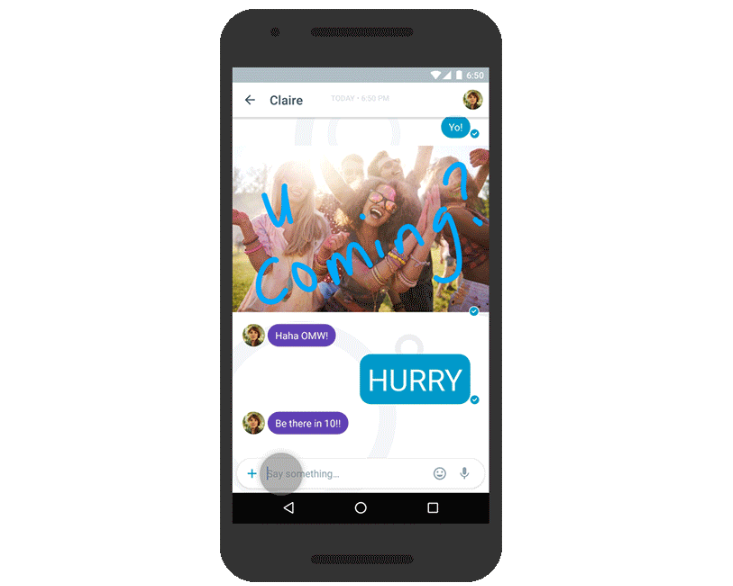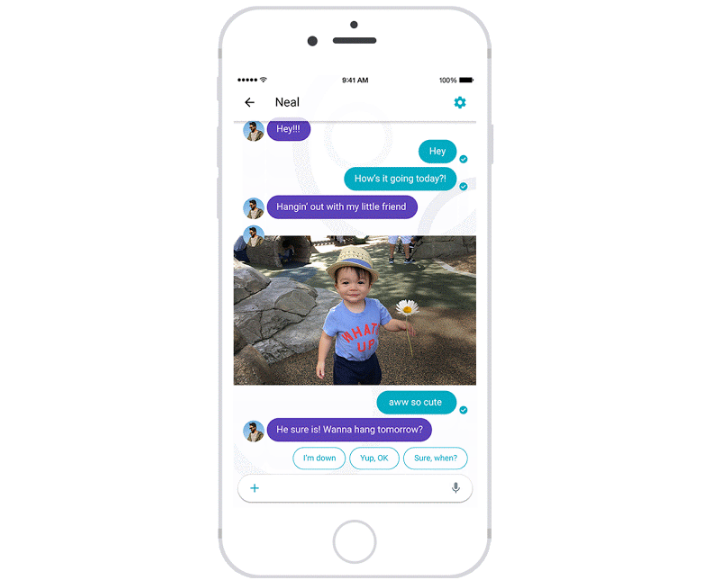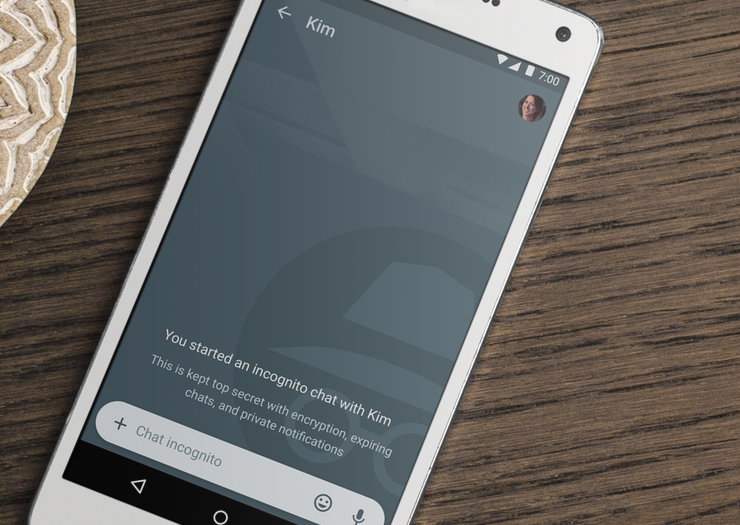Google Tinkers With End-To-End Encrypton In Allo Messenger, Duo Video Chat
At Google I/O 2016, Google announced a new messaging app called Allo that brings myriad new features, including built-in AI (the new “Google Assistant”) and opt-in end-to-end encryption based on the Signal protocol. Other secure messaging apps, including Whatsapp and Silent Circle, also make use of the protocol. The company also announced “Duo,” an end-to-end encrypted video-calling app.
Allo's Built-In AI
Google has been hinting for a while that it wants to put more and more artificial intelligence (AI) capabilities into its messengers, but whereas Hangouts received some of those features with Google Now on Tap, which also works for other messengers, Allo was built from the ground up to integrate Google’s latest and best AI capabilities.

The AI in the Allo messenger is all about saving you time and giving you the right information or stock messages when you need them. It even analyzes pictures and can, for instance, see whether a dog is actually cute or not and then recommend a message to send for that image. Google said that the suggestions become more personalized to you the more you use the app.
Google Assistant
The company also announced its “Google Assistant” at the developer event today, now taking on Siri and Cortana with an artificial intelligence that can understand one-on-one conversations. Google has only had “Voice Search,” which was only about searching the web with your voice, and “Google Now,” which was more about predicting the type of information you’d like to see at a given moment or location.

Although it’s the last one to show such a product (even Amazon seems to have beaten Google to it with Alexa), the company said that it has the best natural language parsing in the world, which means the conversations with the Assistant can be more natural without using specific commands for it to understand what you want.
'Signal' End-To-End Encryption
Google said that its Allo messenger features an “Incognito” mode (just like on the Chrome browser), marking the first time the company introduced end-to-end encryption in one of its apps. You can’t use the Incognito mode by default, although the company said it’s going to continue to add new features to this mode.
For those who aren’t interested in Google’s AI features and just want to use an ubiquitous messenger with end-to-end encryption, it would be good if there was a setting to make the Incognito mode always-on. This would be similar to how you can make Firefox always open pages in the Private Mode by default. Without such an option, users who do want maximum privacy for their conversations may find the Incognito mode too cumbersome to use for most conversations.
Stay On the Cutting Edge: Get the Tom's Hardware Newsletter
Get Tom's Hardware's best news and in-depth reviews, straight to your inbox.
Much like Chrome’s own Incognito mode, everything in a conversation will be deleted as soon as the Incognito screen in the app is closed, essentially acting as a message self-destruct feature.

Although Google didn’t mention it, Open Whisper Systems founder Moxie Marlinspike, who also helped Whatsapp implement the organization’s Signal protocol for end-to-end encryption, published a post in which he unveiled the collaboration between his team and Google over the past few months to implement Signal in Allo. Moxie mentioned that OWS’ goal is to make end-to-end encryption as ubiquitous as possible, which is why the group has been collaborating with all of these messaging companies.
Neither Moxie nor Google mentioned whether there will be a way to verify the “security codes” of other people, like you can do in the Signal messenger and in Whatsapp. However, Moxie promised more details will be coming in a future post, likely around the same time Google launches Allo this summer.
Duo: End-To-End Encrypted Video Chat
Google also announced a separate video chat app called Duo, which promises a more seamless video-calling experience. One of its unique features is “Knock Knock,” which shows who’s on the other end before you even pick-up the call. (Editor's Note: Tough break on that name. Valve beat Google to it by a day.)
Duo’s interface fades away, showing only the video stream of the other person on the call. The video resolution can go up to 720p HD, but it can also be optimized in real time to work in areas where Wi-Fi or mobile connections aren’t as strong.
As with Allo, you can use Duo only with your phone number, similarly to the way Whatsapp works. Unlike Allo, though, the video-calling app is encrypted end-to-end by default. This may be because, at least at this time, Google has no significant interest in collecting people’s voice conversations for various purposes, whether that's targeted advertising or offering more personalized AI assistance.
Cloud AI And Privacy
Cloud-based artificial intelligence (which is essentially allowing another company to collect your data and analyze it) is in direct conflict with end-to-end encryption, which is why, in a way, it’s surprising that Google is even implementing end-to-end encryption at all in its new apps. It was just as surprising when Facebook allowed Whatsapp to do it, as well.
However, many would argue that all conversations should be completely private and only between the people having them. In the future, we may get real-time and client-side AI that can parse our conversations without sending them over to the cloud, at which point end-to-end encryption and AI assistance wouldn’t be in as much conflict as they are today.
Until that future arrives, Google may believe that Allo’s main selling point is actually all the artificial intelligence that’s been built into it, and stripping it out by default would work against its adoption. That would be a reasonable and strong argument for Google to make. However, one thing Google could do, especially if it intends to let Hangouts and Allo live in parallel, is make Hangouts end-to-end encrypted by default.
This would be similar to how Facebook made Whatsapp end-to-end encrypted, while at the same time it’s been enhancing its Messenger with more and more AI features. Then users could have a real and simple choice between private conversations and conversations in which they want an AI to be involved and provide assistance.
This choice could become easier if Allo becomes as popular as Hangouts, because then Google wouldn’t have to worry as much about giving up on the conversations of hundreds of millions of users for little in return. One advantage Facebook had when it let Whatsapp become end-to-end encrypted is that its Messenger was already equally popular.
Both Allo and Duo will be available this summer on both the Android and iOS platforms.
Lucian Armasu is a Contributing Writer for Tom's Hardware. You can follow him at @lucian_armasu.
-
jungleboogiemonster Unfortunately this doesn't work on PCs or Macs, so it's use it kind of limited. Yes, I can do all of my chatting from a phone or a tablet, but I prefer not too. There's also the issue of Google killing off products, so how long will this stick around?Reply
